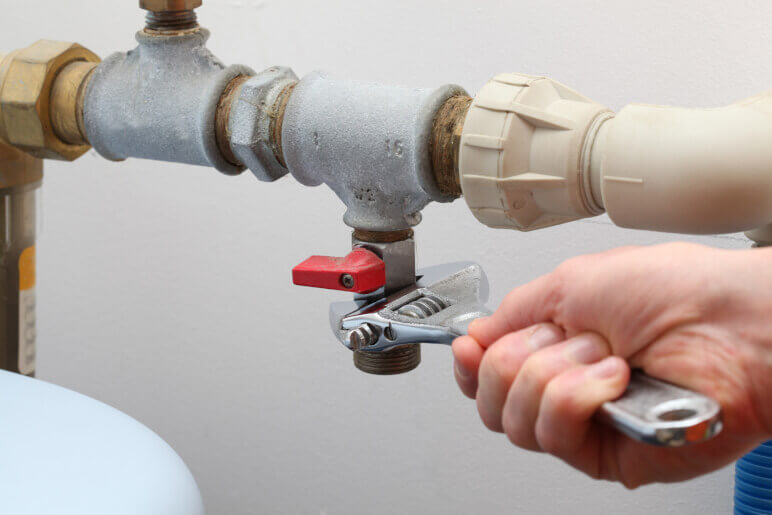New Homeowners: Crucial Tips for Your Bathroom Plumbing
New Homeowners: Crucial Tips for Your Bathroom Plumbing
Blog Article
The content in the next paragraphs relating to Plumbing Tips for New Homeowners is fairly captivating. Give it a go and make your own personal final thoughts.

For brand-new house owners, understanding and preserving washroom plumbing can save both time and money by preventing costly issues down the line. Right here are some vital bathroom pipes suggestions to help you maintain whatever running smoothly.
Familiarize Yourself with the Key Shut-Off Shutoff
Recognizing where the primary water shut-off shutoff lies in your house is important. This allows you to promptly turn off the water system in case of significant leaks or throughout plumbing emergencies, preventing considerable water damage.
Regularly Check for Leakages
Small leakages can bring about huge troubles. Routinely inspect under sinks, around bathrooms, and near pipes fixtures for any indications of leakages. Seek wetness, small drips, or corrosion. Catching and fixing leakages early can stop more major damages and conserve water.
Do Not Ignore Slow Drains Pipes
If your sink or tub is draining slowly, it's typically an indication of a blockage forming. Addressing this very early can protect against a full clog. Utilize a plunger or a plumbing technician's serpent to clear out debris. Avoid using chemical drain cleansers as they can harm your pipes gradually.
Know What Not to Flush
Toilets are not garbage disposals. Avoid purging anything aside from toilet paper and human waste. Items like wipes, feminine hygiene products, and cotton bud need to be taken care of in the trash to avoid clogs and sewer back-ups.
Set Up Strainers in Drains
Location strainers in your sink and tub drains pipes to catch hair and various other debris before they enter your plumbing system. Cleaning up the filters routinely will help prevent accumulation and keep water flowing openly.
Keep Your Hot Water Heater
Guarantee your hot water heater is readied to a proper temperature (generally around 120 levels Fahrenheit) to avoid scalding and lower energy use. Flush the tank each year to remove debris buildup, which can decrease the performance and lifespan of your heating unit.
Update Your Fixtures
If your home has older components, take into consideration upgrading to extra effective models. Modern bathrooms, showerheads, and faucets are designed to use much less water while providing good stress, which can significantly decrease your water bill and ecological impact.
Be Cautious with DIY Plumbing Services
While it's alluring to deal with all home fixings on your own, be cautious with plumbing. Some problems may call for professional proficiency, particularly if they include main water lines or drain repair services. Employing an expert can sometimes be a lot more cost-efficient than do it yourself, specifically if it protects against more damages.
Get Ready For Cold Weather
Shield your pipelines from cold throughout cold weather by insulating pipelines in unheated locations like basements, attic rooms, and garages. During severe cool, let cold water drip from faucets offered by exposed pipes to help protect against freezing.
Arrange Normal Maintenance
Take into consideration scheduling annual examinations with a qualified plumber. They can spot issues that you could miss out on, such as covert leaks or damage on pipes and components. Routine maintenance aids expand the life of your pipes system and can avoid emergencies.
Final thought
Understanding and maintaining your home's restroom plumbing can avoid many common problems. By complying with these essential tips, you can ensure your restroom stays useful and reliable, conserving you money and time in the long run.
Essential Plumbing Tips for Homeowners: Keep Your Pipes Flowing Smoothly
As a homeowner, understanding the basics of your plumbing system can save you time, money, and a lot of headaches. Plumbing issues can range from minor annoyances like dripping faucets to major problems like burst pipes that cause significant damage. This guide provides essential tips to help you maintain your plumbing system and tackle common issues.
Understanding Your Plumbing System
Supply System: Brings fresh water into your home from a municipal source or a well. Drain-Waste-Vent System: Removes wastewater and vents sewer gases outside. Fixtures and Appliances: Includes sinks, toilets, showers, dishwashers, and washing machines. Basic Maintenance Tips
Regular Inspections: Periodically check for leaks, corrosion, and other signs of wear and tear. Look under sinks, around toilets, and near water heaters. Know Your Main Shut-Off Valve: In case of a major leak, you’ll need to shut off the water quickly. Ensure everyone in your household knows where the main shut-off valve is located. Prevent Frozen Pipes: In cold climates, insulate exposed pipes and let faucets drip during extreme cold to prevent freezing. Use Strainers: Install strainers in sinks and tubs to catch hair, food particles, and other debris that can cause clogs. Common Plumbing Issues and Solutions
Clogged Drains:
Prevention: Avoid pouring grease down the drain and use drain screens to catch debris. DIY Fix: Use a plunger or a plumbing snake to clear minor clogs. For stubborn clogs, a mixture of baking soda and vinegar can sometimes help. Leaky Faucets:
Prevention: Replace washers and seals regularly. DIY Fix: Turn off the water supply, disassemble the faucet, and replace worn parts.

Call Today Report this page